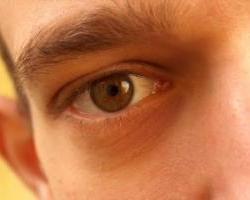Sponsored Links
Main Menu
Treatment
Self Tests
OCD
- Facts about OCD
- OCD Questions & Answers
- YBOCS: Yale-Brown OCD Scale
- Sexual Obsessions
- Hoarding & Saving OCD
- Washing & Cleaning
- Homosexuality Anxiety
- Christians & OCD
- Medication for OCD
- Combining Medication for OCD
- CBT Therapy for OCD
- Therapy for Kids with OCD
- OCD & African Americans
- Herbal Remedies for OCD
- Brain Surgery for OCD
- Treatment Resistant OCD
- OCD & Depression
- Real People's OCD Stories
- Online Therapy for OCD
Spectrum Disorders
- Obsessive-Compulsive Disorder
- Tourette Syndrome
- Hypochondria
- Body Dysmorphic Disorder
- Depersonalization Disorder
- Trichotillomania (Hair Pulling)
- Compulsive Skin Picking
- Nail Biting
- Deliberate Self-Harm
- Olfactory Reference Syndrome
- Sexual Compulsions
- Compulsive Gambling
- Kleptomania
- Eating Disorders
- Obsessive Compulsive Personality
- Autistic Disorder
Anxiety & Mood
- Panic Disorder
- Panic Attacks
- Social Anxiety & Phobia
- Taijin Kyofusho
- Specific Phobias
- Generalized Anxiety
- Traumatic Stress Disorders
- Major Depressive Disorder
- Bipolar Disorder
- OCD & Bipolar
- Depression & God
Eating Disorders and Body Image
Stroke Survivors More Likely to be Depressed?
According to a recent study, stroke survivors are susceptible to serious cases of depression regardless of how severe of impairment they had to deal with following the stroke.
In order to come to their conclusions, researchers analyzed the information and cases of 367 stroke survivors. The average age of the survivors was 62 years old, and none of them experienced any serious language or thinking skill impairments following the stroke. Yet, 174 of the survivors were diagnosed with depression one month after their stroke.
To measure the level of independence of the subjects, researchers used a 0 to 5 scale – with 5 being the most in need of assistance, and 0 being the least. Nearly three months after their stroke, 20 percent of the patients ended up scoring 3 or higher in the analysis.
Stroke survivors who were older, had multiple health problems and were prone to depression found themselves far more dependent than those who were younger, didn’t have any other health problems and weren’t as depressed.
"Post-stroke depression is a common problem. About 795,000 people in the United States have a stroke each year and one-third of survivors develop depression as a result," said study author Arlene Schmid.
"Even if the treatment and improvement of post-stroke depression does not directly influence recovery, it is extremely important for depression to be identified and treated since it is associated with other health and social problems."
This study appears in the March 15 issue of the journal Neurology.

OCD Self Test
Do you or a loved one feel like you might have a problem with OCD?
Take the Self Test now to get more information.
Sponsored Links
The information provided on brainphysics.com is designed to support, not replace, the relationship that exists between a patient/site visitor and his/her health professional. This information is solely for informational and educational purposes. The publication of this information does not constitute the practice of medicine, and this information does not replace the advice of your physician or other health care provider. Neither the owners or employees of brainphysics.com nor the author(s) of site content take responsibility for any possible consequences from any treatment, procedure, exercise, dietary modification, action or application of medication which results from reading this site. Always speak with your primary health care provider before engaging in any form of self treatment. Click here to read our complete Terms of Use.
Call Now—Help Available 24/7 (877) 331-9311
Sign up for our newsletter to receive mental health Information & Inspiration
Sponsored Links
You May Also Want To Read
Other People Are Also Reading
Online Support Groups

SupportGroups.com provides a support network for those facing life's challenges. Click on the following links to get a helping hand in a confidential, caring environment.












Call Now—Help Available 24/7 (877) 331-9311